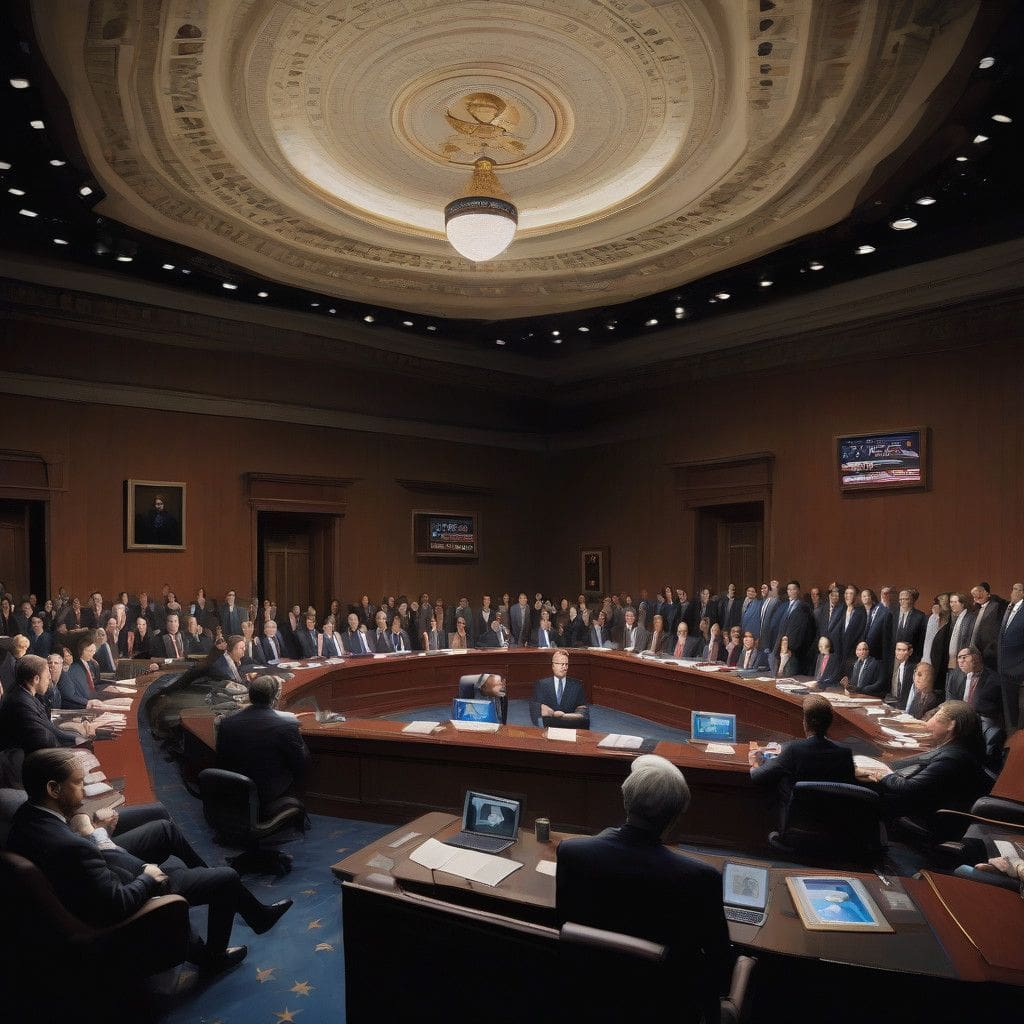In a critical session held on September 18, 2024, members of the US Senate Intelligence Committee interrogated major technology companies about their strategies to mitigate foreign disinformation threats as the November elections approach. With increasing concerns over the integrity of the electoral process, executives from Google, Microsoft, and Meta (formerly Facebook) were put in the spotlight, highlighting the importance of their actions in safeguarding democracy.
Senator Mark Warner, the committee’s chairman, noted the heightened risk of disinformation campaigns, particularly during the 48 hours surrounding Election Day. Brad Smith, Microsoft’s president, corroborated this assertion, identifying the period immediately after polls close as especially vulnerable. This timeline is crucial; in tightly contested races, misinformation can easily manipulate public perception and sway voter opinions.
During the hearing, lawmakers scrutinized recent tactics employed by foreign actors, including the creation of fake news websites that mirror reputable US media outlets and the dissemination of fabricated recordings related to elections in other countries. The senators pressed the tech executives for concrete data on how many users had encountered such content and the circumstances under which it was promoted. The significance of these inquiries cannot be overstated; understanding the scale and impact of disinformation is vital for formulating effective countermeasures.
In response to these concerns, the technology companies provided an overview of the steps they have taken so far. Initiatives such as labeling and watermarking content to identify deepfakes and misinformation were discussed. However, lawmakers were quick to point out that while these measures represent progress, there is room for improvement. Enhancing efforts to limit the spread of harmful content, especially during sensitive electoral periods, should be a top priority for these platforms.
This session aligns with a broader trend in how governments are positioning themselves against potential cybersecurity threats. Countries around the world are recognizing that foreign interference in domestic affairs, particularly through disinformation, poses significant risks to democratic processes. Legislators are under pressure to ensure that tech giants maintain robust policies and technologies to protect the integrity of information.
For instance, consider the case of the 2020 US elections, which were marred by widespread misinformation regarding voter fraud and electoral security. Tech platforms faced backlash for their perceived inaction and were subsequently urged to adopt stricter guidelines and more effective monitoring systems. Lessons from that election have undoubtedly shaped the current scrutiny in the Senate.
Moreover, the differing approaches among tech companies underscore a critical point: the effectiveness of their strategies can vary significantly. While some platforms may have adopted advanced algorithms to detect disinformation, others may still be catching up. This disparity may leave gaps that foreign actors can exploit, highlighting the need for uniform standards across the industry.
Lawmakers expressed a collective desire for more transparency. They urged tech companies to share data on not just the prevalence of disinformation but also their response strategies and the outcomes of those measures. Transparency fosters accountability, which is essential for building public trust. If users can see that tech companies are proactively addressing disinformation, it may alleviate concerns about the state of information integrity.
In addition to immediate electoral threats, the committee’s discussions reflected wider implications for online discourse. With tech giants controlling vast portions of the information landscape, they wield significant influence over public opinion. It’s a responsibility that comes with a need for ethical stewardship and a commitment to truthfulness in communication.
As the elections draw nearer, the pressure on these platforms will only intensify. Future hearings and discussions will likely play a crucial role in shaping policy and guiding tech companies in their efforts to combat disinformation. Stakeholders, including policymakers, civil society, and the general public, should continue to engage in these conversations to foster a more secure information ecosystem.
The scrutiny faced by technology companies from the US Senate serves as a crucial reminder of the ongoing challenges posed by disinformation in the digital age. As elections approach, the call for more comprehensive solutions and greater accountability will echo, underscoring the complexity of ensuring that democracy remains resilient against external threats.












